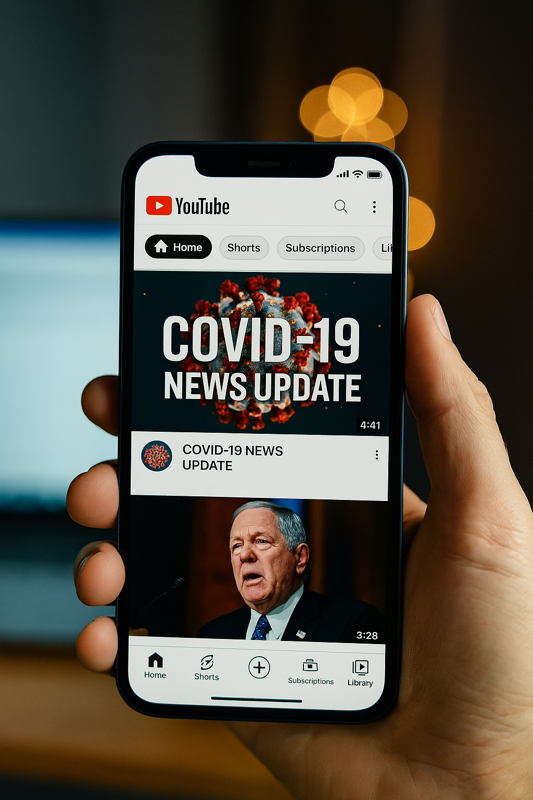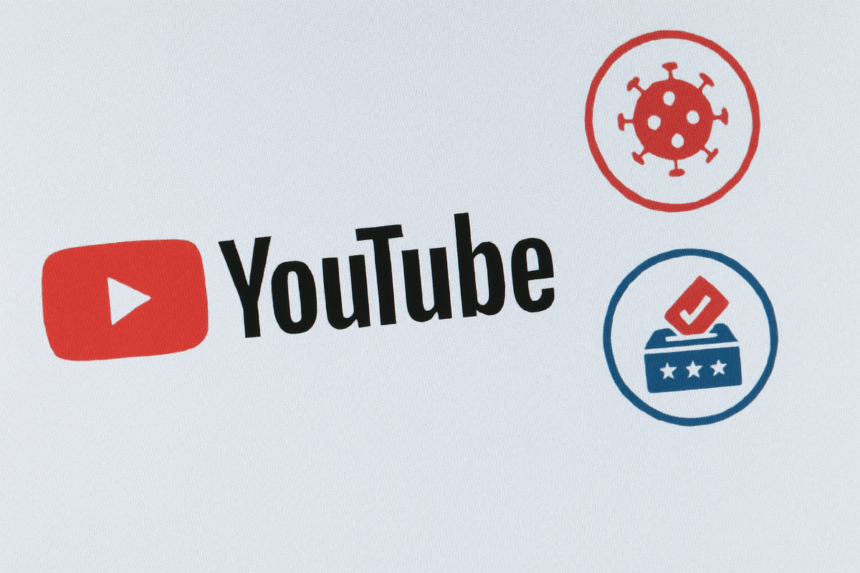YouTube plans to reinstate channels previously banned for repeatedly posting false information about COVID-19 and the 2020 U.S. presidential election. This decision has stirred debate about free expression, government influence, and online misinformation. Furthermore, this move comes amid rising political scrutiny and a growing clash between tech platforms and regulators.
What’s Happening & Why This Matters

YouTube, owned by Alphabet, announced the decision in a letter to House Judiciary Committee Chairman Jim Jordan. He is investigating whether the Biden administration pressured leading tech companies to censor content. Alphabet’s counsel, Daniel F. Donovan, confirmed that creators whose accounts were terminated for violating now-defunct COVID-19 and election integrity policies can reapply to join the platform.
The decision affects high-profile figures, including conservative pundits like Steve Bannon, Dan Bongino, and former White House counterterrorism chief Sebastian Gorka. YouTube previously removed their accounts for spreading pandemic-related misinformation and false claims about the election results. Moreover, other creators are also demanding that individual videos taken down under these policies be restored.
In its letter, YouTube defended its platform’s role in fostering open debate:
“YouTube values conservative voices on its platform and recognizes that these creators have extensive reach and play an important role in civic discourse,” Alphabet wrote.
The company also noted its stance on independent policy enforcement, stating that no government should dictate its moderation practices. Alphabet accused the Biden administration of creating a “political atmosphere” that pressured platforms to act against certain content. The then-Administration’s pressure was applied even when it didn’t explicitly violate existing rules.

Updating Moderation Strategies
The reversal is another sweeping reform across Silicon Valley: the loosening of content moderation policies. Meta and Elon Musk’s X (formerly Twitter) have taken similar steps to reduce fact-checking and allow more user-generated content. Thus, responsibility is with the users through features like ‘Community Notes’.
Meta CEO Mark Zuckerberg also admitted in a letter to Rep. Jordan that his company felt government pressure during the pandemic. However, Meta ultimately made independent decisions. In early 2025, Meta eliminated its fact-checking teams, mirroring the approach taken by X.
The timing of YouTube’s policy rollback is politically charged. President Donald Trump, in his second term, has strengthened ties to prominent Big Tech leaders, including OpenAI’s Sam Altman, Google’s Sundar Pichai, and Microsoft’s Satya Nadella. The executives pledged billions in U.S. investments and attended high-profile events. Such interactions reinforce their influence in Washington.
Legal and Political Implications
The decision also revives a debate about First Amendment protections and the tug-of-war between free speech and public safety. Last year, the Supreme Court ruled that government officials can advise tech companies on misinformation policies. However, they cannot directly demand removals, leaving the companies to decide their enforcement strategies.
Rep. Jordan hailed YouTube’s reversal as a victory for free expression. Yet, critics warn that reinstating these accounts risks flooding the platform with misinformation. Alarm bells are ringing, especially as the 2026 U.S. midterm elections cycle begins soon. Some online commentators accuse Republicans of hypocrisy, pointing out simultaneous efforts to pressure networks ABC and CBS over political programming. Most notably, the recent controversy surrounding Jimmy Kimmel’s late-night show.
TF Summary: What’s Next
YouTube’s decision enters the platform into a new era of content moderation. This era is driven less by government directives and more by corporate interests and political alliances. While banned creators regain access to massive audiences, is YouTube’s reputation and credibility at stake? Will the new policies protect users from harmful misinformation or provide a diversified school of thought?
MY FORECAST: Expect mounting political battles over online speech leading into 2026. YouTube and related platforms are caught between government oversight and a commitment to free expression.
— Text-to-Speech (TTS) provided by gspeech


